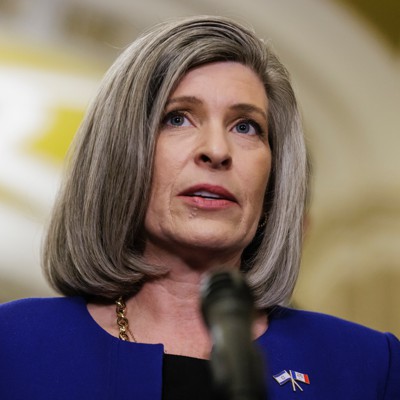Lawmakers are proposing yet another bill aimed at increasing transparency around federal agencies' use of telework, this time requiring a number of data reporting changes already underway within the government.
Sen. Gary Peters, Democrat of Michigan, and Sen. Joni Ernst, Republican of Iowa, last week announced the introduction of the bipartisan Telework Transparency Act (S. 4043). The bill would require federal agencies to publish on their websites policies governing employee telecommuting and provide information on employee flexibility usage, federal building occupancy data, and the impact on agency performance. There is a need to establish automated systems for tracking.
Since the end of the coronavirus pandemic in 2022, Republicans in Congress have been pressuring the Biden administration to reduce telework, citing service backlogs at many government agencies that occurred during the pandemic. . Ernst himself accused, without evidence, of committing a “fraud” in which federal employees moved to lower-cost areas while continuing to collect local salaries at their former locations. She reiterated her accusation in a statement last week.
“Since 'temporary' telework policies were enacted more than four years ago, remote lifestyles have occurred at the expense of the people federal agencies are supposed to serve,” she said. . “My bipartisan bill would provide full transparency about the inefficiencies of telework and ensure that taxpayers no longer have to worry about expensive wasted space at federal headquarters or overspending on local government salaries. there is no.”
Many of the bill's provisions governing data collection have already been undertaken. The Office of Personnel Management produces an annual report on telework, even though at the time of publication it uses data that is more than a year old. The report calls on agencies to provide more detailed and timely telework data, including reports on the number of employees working from home. Signed remote work and telework agreements, and ensured employees “diligently” logged telework usage in human resources and time and attendance software.
Peters said in a statement that the bill will ensure federal agencies have accurate and timely data when determining workforce policy.
“Federal agencies must track and consider the impact of telework on their ability to deliver services, recruit and retain talent, and ensure cost-effective office operations,” he said. “My bipartisan bill would require government agencies to collect accurate data on telework policies to increase transparency and help federal agencies effectively carry out their missions on behalf of the American people. .”
The introduction of Peters and Ernst's bill makes possible another bipartisan telework bill, the Telework Reform Act, a bill sponsored by Sen. Kyrsten Sinema, Democrat of Arizona, and Sen. James Lankford, Republican of Oklahoma. It raises questions about the possibility. codifies remote work in federal law, establishes stronger reporting and training requirements for telework, and allows military and law enforcement spouses to be hired noncompetitively for remote work jobs. To do. The bill was twice delayed before Peters' Senate Homeland Security and Governmental Affairs panel.


